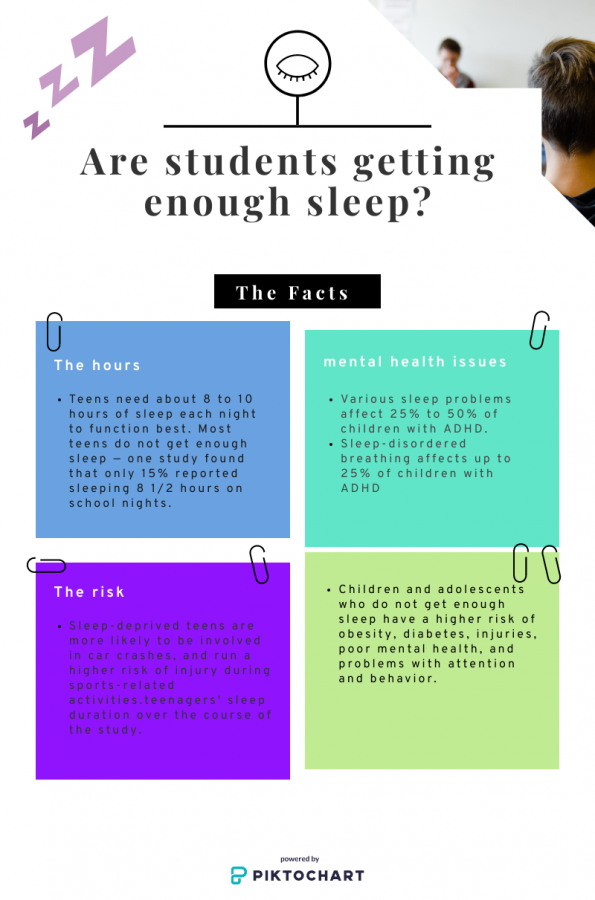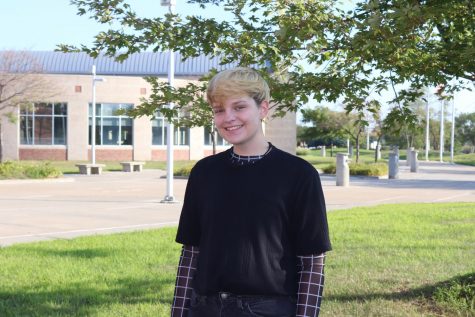Sleeping as a student
High school students aren’t getting enough sleep which can cause detrimental health issues
Students need to know the causes of not getting enough sleep at night.
March 9, 2020
Students always struggle to go to bed on time due to homework or binging the next new show. 70% of high schoolers aren’t getting enough sleep according to a study by Standford Children Health. This is creating compilations for students’ health. Students usually go to school for eight hours a day and nights save for working part-time, studying, homework and extracurricular activities. This tight schedule for students to get the right amount of sleep they need.
Sleeping is very vital for teenagers. A student’s amount of sleep can affect their performance in school and managing stress. A study from the Sleep Foundation found that only 15% reported sleeping 8 1/2 hours on school nights. However, according to a study from Nationwide Children Hospital, t most teenagers need exactly 9 ¼ hours of sleep.
Another big issue is going on sleeping disorders in teenagers. More than 70 types of sleep disorders exist. According to the Sleep Foundation, many teens suffer from treatable sleep disorders, such as narcolepsy, insomnia and sleep apnea. Sleep disorders are very common in children and teenagers but they are not recognized. The Cleveland Clinic states sleep disorders may lead to daytime moodiness, irritability, lack of focus in class and significant behavioral and learning problems. Substance abuse is known to occur. Some sleep disorders can create long term damage to cause cardiovascular and metabolic health.
With 90% of students being sleep-deprived in a study from the American Academy of Pediricates, a lack of sleep can have negative mental health effects. One sleep laboratory study found that children with an anxiety disorder took longer to fall asleep, and slept less deeply compared to a group of healthy children. According to Health Havard, various sleep problems affect 25% to 50% of children with ADHD. Students that have depression can risk having insomnia, but about one in five suffer from obstructive sleep apnea.
With damaging mental impacts, the lack of sleep can cause physical harm on the body. Students can risk having more acne and ave more of an effect on caffeine, nicotine and alcohol. Also not getting enough sleep can cause weight gain and increase mood swings according to the Healthline 11 effects of sleep deprivation.
In general, students being sleep deprived is common issues that need to be addressed to parents, students and teachers. There are ways to prevent the effects of being sleep deprived. Limiting naps during the day, no caffeine past noon and going to the bed at the same time daily are good starts for getting quality sleep. Avoiding technology, big meals and working out in the evening are good habits to start to avoiding becoming sleep deprived according to Health Havard. Some schools are taking action to better students’ sleep schedules and performance in school. With students struggling with sleep this is causing students not to be successful in school. Students are lacking sleep and need to be addressed.







